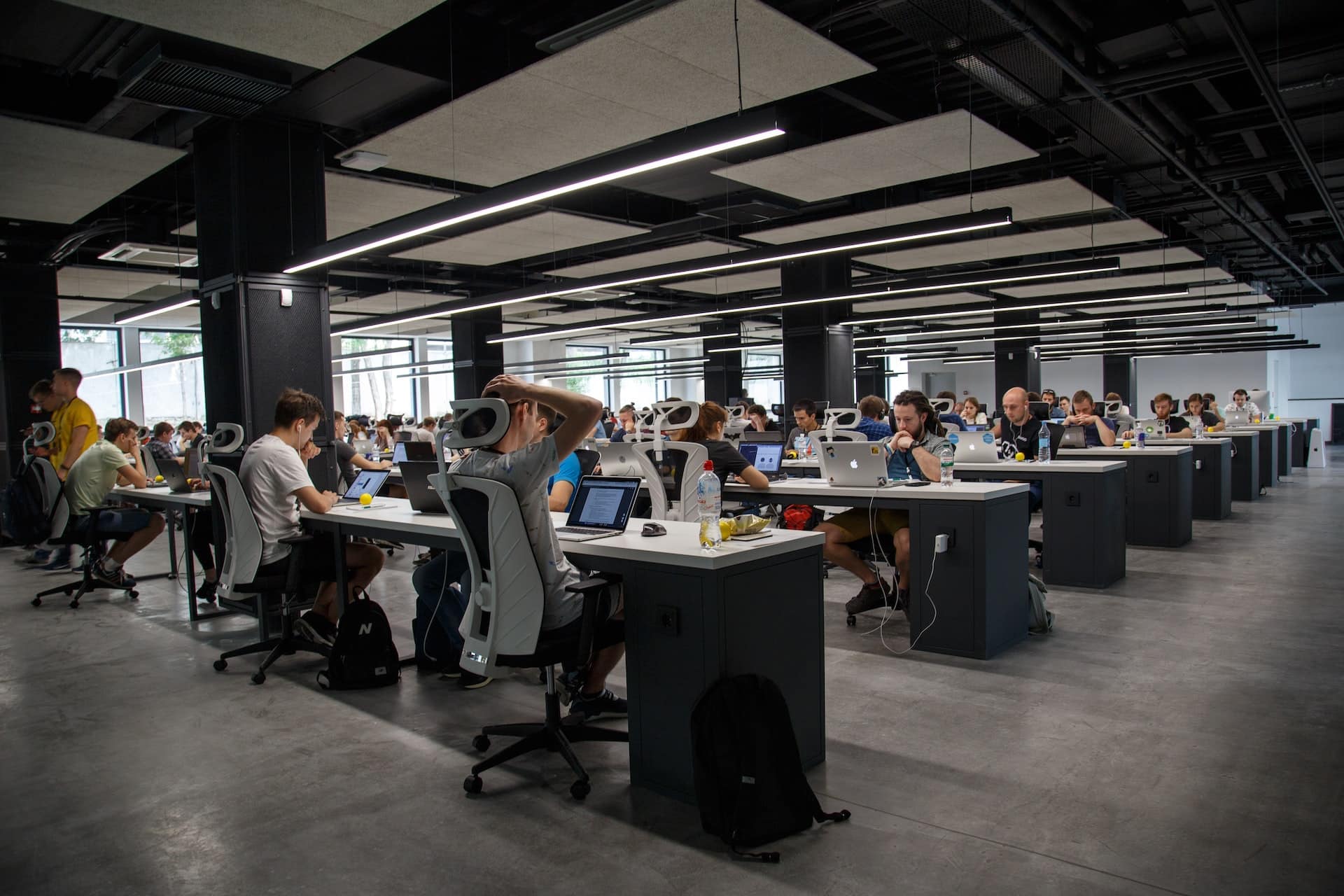Between cloud services, advances in video calling and virtual meetings and a dramatic rise in online software solutions for things like project management and group working, it’s no wonder just how many businesses have chosen to go fully digital in recent years.
This has also created a significant shift and an even larger discussion in the business world about how office space is used. The reality is, if 70%, 80% or more of your employees can now work entirely from home, is there any particular need for offices at all anymore?
IMAGE: UNSPLASH
The Range Of Fully-Digital Industries
Crypto, blockchain, NFTs, stock trading; look around the Internet for more than 30 minutes and you’ll come across at least one of these. You can expect that if these companies keep office space at all, it’ll be in the smallest possible way.
We can fully expect this list of businesses to expand in the coming years to include industries that would not normally be digital as technology makes more things possible. We’ve already started to see progress on this front, as tech starts to be used to enhance traditional trades and fully-virtual services can’t be too far behind.
How Does This Affect Office Life?
10 years ago, if you went to the address of a medium or large-scale business, you’d entirely expect that address to be entirely theirs. The thing is, as more and more employees are enabled to do their work remotely, the need to have dedicated office space has dramatically decreased, and offices have become a huge unneeded expense as a result.
Most employees are used to operating digitally in their daily lives. They may have completed their weekly shop online every week for several years or they stream all of their audiovisual entertainment – whether that’s TV, films or music. Many are even rewarded for participating in their hobbies online.
Bettors are able to take advantage of online casino promotions. They might be able to get free bingo tickets for joining a new provider or join a ‘happy hour’ event if they’re betting within certain defined times.
That’s why new systems of work such as hot-desking, office sharing and coworking are rapidly on the rise. Hot-desking is a system where employees would not have their own dedicated desk, but would instead book a desk for a period of time during the day, making it available when they aren’t in the office as part of hybrid working. Statistics are a little hard to come by, but provider Envoy saw a 95% increase in service use over only a month in 2021.
Office sharing and coworking are somewhat similar concepts, used by companies whose physical office requirements may be so small that having any kind of dedicated space at all isn’t needed. With office sharing, larger companies with extra space may rent out offices to smaller companies, while in coworking, multiple companies would share the same office, so that employees of different companies could be working next to each other.
What Will Happen To Traditional Offices?
Regardless of technology or advances, there are some industries, such as finance or legal, that seems intent on having the physical office stay intact, simply because the essential exchange of information needed is quicker and simpler in person. The likelihood is, there will remain a place for both halves, although what ratio it would be in is hard to say.
IMAGE: UNSPLASH
If you are interested in even more technology-related articles and information from us here at Bit Rebels, then we have a lot to choose from.


COMMENTS